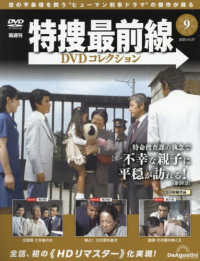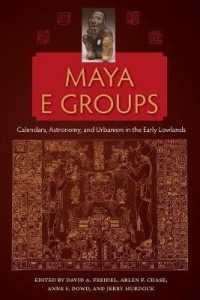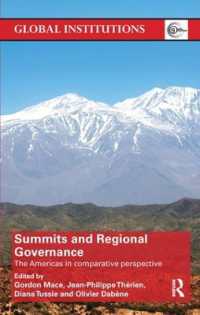Full Description
The Readings in Language Studies series presents international perspectives on important and emergent themes in language studies: critical pedagogy, language and power, language and identity, second language acquisition, conceptualizations of language, teachers and teaching. Each volume in the series is developed and edited in partnership with the International Society for Language Studies (www.isls.co), an interdisciplinary association of scholars who explore critical perspectives on language. A resource for students and scholars, each themed volume in the series represents the latest thought, literature, research, and methodology in language studies and features authors from across the globe. The series, which includes this current volume, is an essential scholarly resource for universities and personal libraries.
Contents
Identifying and Responding to Linguicism: Toward a Conceptual Model; Timothy Reagan and Danielle Gabrielli.
Chapter 1. Teach Critical Content and Aim for Transformation: The Potential of Language Study in K-12 Education as a Key to Active Citizenship; Martina Fernández Fasciolo.
Chapter 2. Transformative Resistance: Politeness Conflict in the English as a Foreign Language Classroom; Gerrard Mugford.
Chapter 3. Harmonious Bilingualism Spanish-English Mexican American Children; Irdawati Bay Nalls.
Chapter 4. Transforming Teacher-Student Communication Under COVID-19: Using the ARS to Give Students Voice in Remote Japanese University EFL Courses-Part I; Brian G. Rubrecht.
Chapter 5. Teaching Implied Meaning Using Written Texts in Public Spaces: Social, Societal, and International Factors in English, Arabic, and Lithuanian; Betty Lanteigne, Ronak Husni, and Radvyda Vaišvilaitė.
Chapter 6. Metaphorical Creativity for Social Justice: Challenging Stock Stories With Poetry, Music, and Film; Gerry Yokota.
Chapter 7. Describing and Perceiving Sexual Orientation Based on Linguistic Cues: An Update of Schwieter (2010); John W. Schwieter and Jaime Antonio Rivera Flores.
Chapter 8. Preservice Teachers Confronting Issues of Diversity Through a Radical Field Experience; Paul Chamness Miller and Erin A. Mikulec.
Chapter 9. Empowerment and Its Limitations: Considering Why Things Go Wrong in Second Language Classrooms; Elizabeth R. Miller.
Chapter 10. Assessment of English Language Learners and Learning Disabilities With Consideration of Ethno-Cultural Background; Susana Rivera-Mills.
Chapter 11. Multicultural Social Justice Education Through the Lens of Positioning: English Language Learners in K-12 Contexts; Hayriye Kayi-Aydar.
Chapter 12. Revaluing Our Discourse Varieties, Revaluing Ourselves: Falling in Love With Reading and Our Own Beautiful Selves, Through Student-Centered Inquiry and Organizing the West Valley Reading Rally; Mia Angélica Sosa-Provencio.
Chapter 13. The Power of Powerless Linguistic Particles: Their Pragmatic Impact on Bilingual Hearings; Marjorie Zambrano-Paff.
Chapter 14. From West Indian Black to Afro-Costa Rican: A Sociohistorical Perspective on the Role of Language, Race, and Culture in the Transition; Lisbeth A. Philip.
About the Editors.
About the Contributors.
Sharing the Memories of Paul IIda.
Hair, Not for Sale to Whites; Yuko Taniguchi.








